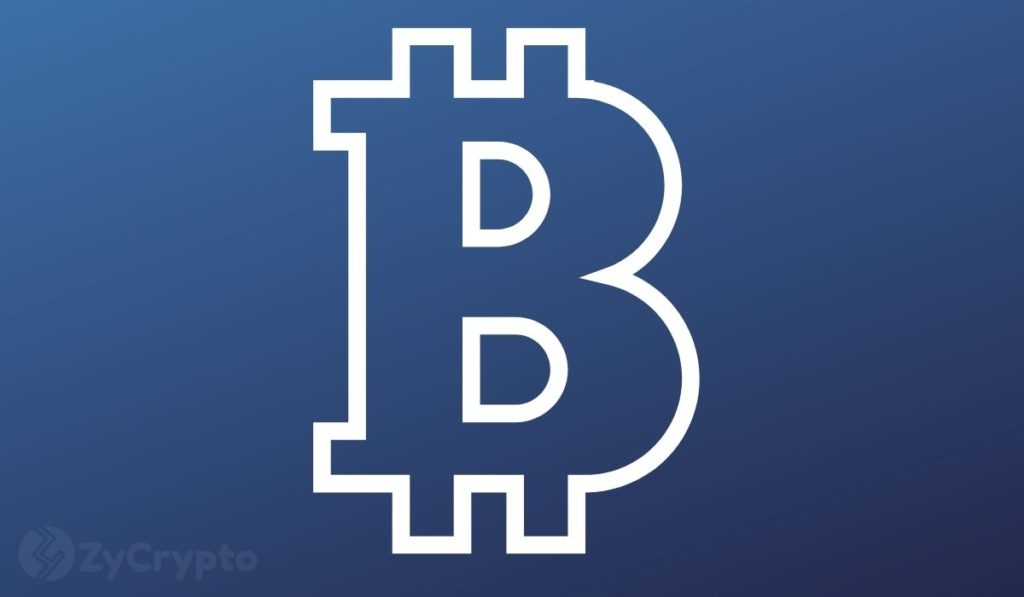2022-6-27 20:00 |
When human living space becomes an investment and store of value, the ownership of said land becomes distorted and centralized.
This is an opinion editorial by Jimmy Song, a Bitcoin developer, educator and entrepreneur and programmer with over 20 years of experience.
Real estate is a fiat possession.
Not only is it ridiculously expensive, but it's also difficult to maintain. Anyone that buys property is buying themselves a job. It's the epitome of the quote from Fight Club: "The things that you own end up owning you." What's worse is that the rights over your property are limited.
Governments love pumping real estate because it gives people a sense of security and because it's easy to tax — and pump it they do. Through mortgages and favorable tax treatment, home ownership has been a tool in the game of bread and circuses in which governments are continuously engaged. They use real estate as a way to both mollify and control. As a result real estate is a centralized, tenuous form of ownership, dependent on the whims of politicians.
Real estate isn't portable, so it's very easy to tax. The ease of taxation ultimately means that the government can degrade the property rights of the owner. As I will show in the rest of this article, land ownership has been debased and is in many ways the ultimate fiat possession. The authorities get to decide just how far your rights really go, and in many cases, it's not very far.
Nobody Really Owns LandThe government backs up its taxation power with threats of force. The threats in this case include taking the property away from you. You may think you own the land, but in reality, you have exclusive use of it with the government's permission. The government can take it away at any time — and on a long enough time scale, they eventually will.
Your possession of the land is like a company car. You can use it for as long as you follow the rules, but the possession is tenuous and dependent on keeping the real owner happy. Our real owner in the case of all real estate is the government.
In that sense, real estate is really a long lease from the government. They're the real owners and we need permission from them to use the property. As long as we pay our taxes and use the land in a way that's approved, we can use the land. But using the land in a way that they don't like means they will take the land away. We have the illusion of possession when in reality it's a rental.
Zoning Ordinances And Eminent DomainZoning ordinances are a way in which governments restrict what you can do with your property. If land is designated for certain types of use, you cannot use it for anything other than that use. So land zoned for residential use cannot be used for commercial use and vice versa. This changes the value of the land since it gives advantages to certain lots of property over others. Zoning lets authorities pick winners and losers.
As with other government orders, zoning is backed up by force. You can be dispossessed of your land much like your company car if you piss off the real owners.
What's worse than zoning laws are eminent domain laws which allow the government to take land for a "fair price." If the government wants to take land away from you, they can for almost any reason.
Usually it's for some "public good" like a highway or an airport. What's been particularly egregious the past 20 years has been the use of eminent domain for "economic development." This is the practice of taking away property from one set of people and giving it to another so they can "develop" the property in a way the authorities like. Eminent domain is picking winners and losers and is abused on a regular basis.
The property rights of the land-owner are severely diminished by this power. Sadly, land rights in other countries are even worse, where property is centrally controlled and given out as political favors.
Scarcity Of Real EstateYet despite all these disadvantages, real estate continues to go up in price. Long-term, it tends to be a very good investment, outpacing CPI.
The reason why, is because of the scarcity of real estate. When there's extra money coming into the economy, it tends to find its way toward scarce assets. As they say, they aren't making any more land so it has a tendency to appreciate faster than other things.
Furthermore, real estate has a privileged position in central bank-backed monetary systems because there are special loans available for them. Mortgages are treated very differently and have lower rates than other consumer loans. Think about how much lower your mortgage rate is compared to your credit card or even personal loans. Mortgages add a lot more money to the economy and enlarge the supply of money. Real estate has been and continues to be a large Cantillon winner.
Confusion About MortgagesThis is probably a good time to clarify something about mortgages. Most people think that mortgages come from someone's savings. They think that multiple people getting 1% in their checking accounts are the source of their mortgage at 3%. They reason that this would give 2% to the bank. Somehow, this funds the lavish buildings, security systems, guards, vaults and ATMs. Of course, this is not the case.
Mortgages are not money coming from someone's savings. They are printed into existence by the bank for the benefit of the borrower. A $500k house usually requires a $100k down payment. The other $400k does not come from someone's savings, but through newly created money. The $400k is created for the borrower's benefit at the time of the loan.
Thus, there is no opportunity cost for mortgages for the bank. The only risk for them is default, and even that is covered by mortgage insurance. In particular, Fannie Mae will insure any mortgage that fits certain criteria. The bank wins because they get interest on money that they create out of thin air. The borrower wins because they get access to capital. Who loses? Everyone else whose money is being debased. We are eating our own tails to stave off starvation.
Thus, banks make risk-free profit for every qualified mortgage and they make as many of them as they can. The result is that they print money like there's no tomorrow because they are incentivized to. The new money coming into existence is of no concern to them.
Because mortgages give access to newly printed money, this is one of the few ways that consumers can get in on the Cantillon effect. Real estate benefits disproportionately because the creation of this money requires the purchase of real estate. Hence, real estate tends to go up in price disproportionate to other goods in the economy. They are simply at the front of the line when it comes to Cantillon Effects.
Store Of ValueBecause of this peculiar Cantillon Effect, there's a collective sense that real estate is a good store of value choice over the long term. Combined with its scarcity, the perception is that housing will continue going up in value.
The result is that housing, even when corrected for inflation, has become way more expensive. One way to measure this is the housing cost-to-income ratio. In the 70's it used to be around 4. That is, the average person would buy housing that's worth 4 times their yearly income. Currently, it's around 8. This is a large premium specifically from its utility as a store of value. People don't want real estate so they can live in it or use it for production. They want real estate so they can store value.
This is most obvious when looking at a market like China. The association of land and wealth is so strong there that more people buy second homes than first homes. Even third homes are roughly as common as first homes. This isn't necessarily because people want to have lots of places to vacation — it's because homes are a good way to protect against wealth devaluation from inflation.
As a result, we see not only unfinished buildings, but entire cities of empty buildings. This is gross malinvestment that destroys capital, and it's all over China. There is such a thing as too much housing, especially in a country whose population growth has slowed to a crawl.
Fiat ArchitectureThe irony is that even with all of this money coming into real estate, it's more transient than ever. Most residential homes are torn down and rebuilt every 25 years or so, especially in desirable areas. The materials that are used don't lend themselves to lasting a long time. The homes reflect the high time-preference behavior of fiat money.
Buildings have been debased along with the money. One of the reasons is that most of the time, the people that develop the land are disconnected from the people that end up living in the home. Developers mass produce homes and produce inferior quality goods because there's so much artificial demand from fiat money. Homeowners get in debt and end up paying for shoddy craftsmanship.
Contrast this to buildings under sound money. There are entire towns in Europe where houses are built of stone and have lasted for centuries. Most homes being built now are unlikely to last anywhere near that long.
Bitcoin And Real EstateThe store of value premium on real estate will likely last as long as fiat money does. Mortgages are politically favored and are likely to continue getting fiat subsidization as long as fiat money lasts. The advantages that real estate gets over other assets are great and unlikely to disappear under a fiat standard.
Under a Bitcoin standard, however, real estate is likely to be cheaper and more affordable. Creating loans for the sake of housing has resulted in high housing prices, so that will clearly cease. Also, home buyers won't be able to buy on leverage, which is really bringing future consumption forward. That behavior won't be available because loans will have to come from savings. Interest rates in that case are likely to be much higher resulting in fewer people buying on leverage.
Homeowners will actually have to save and will have lower time-preference in their purchases. Instead of frantic building by developers, we're likely to get more custom-built homes, which will be better constructed and last longer. Ultimately, this means that the quality of homes will go up, even as costs come down. We can reasonably expect more people to own homes at a lesser cost as people use bitcoin as their store of value instead of real estate.
Let's hope this happens soon.
Ten Ideas Coming to Real EstateNo money down, cash back to buy a condo.Lending your house to a custodian for a 2% return so you can lose your house when they go bankrupt.Squatters' rights that mature faster depending on how oppressed you are.Seize property from people who don't mask indoors.Private mortgage insurance that requires signing over your first-born.Eminent domain to take land from fossil fuel proponents.A real estate tax only for men.Smart-contract based houses that lock you out whenever Solana goes down.Discount on real estate taxes for putting up one of those "in this house we believe" signs.Your house will preemptively be taxed for the carbon emissions it's expected to make over the next 30 years.This is a guest post by Jimmy Song. Opinions expressed are entirely their own and do not necessarily reflect those of BTC Inc or Bitcoin Magazine.
origin »Bitcoin price in Telegram @btc_price_every_hour
Intelligent Investment Chain (IIC) на Currencies.ru
|
|
















